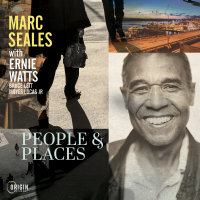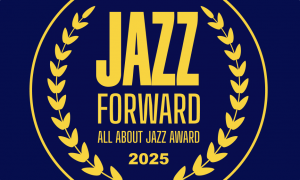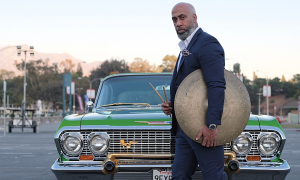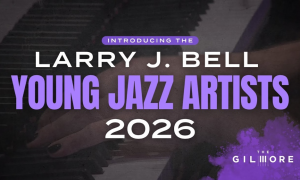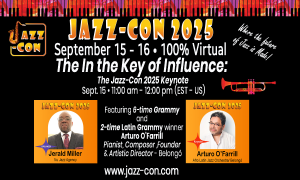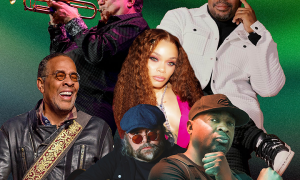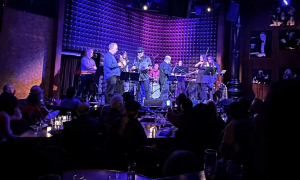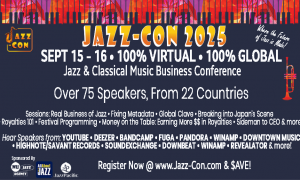In recent news reports, it's becoming more and more apparent -- that at a time when the record industry is reeling from changes that it barely understands -- other industries are beginning to experience many of the same transformations. Take, for instance, the recent pricing war between Wal-Mart and Amazon - where 10 book titles were dramatically discounted by the big-box retailer and Amazon, including many others, followed suit by decreasing their prices as well.
It didn't take long before the bemoaning began, that, “If readers come to believe that the value of a new book is $10, publishing as we know it is over," explained David Gernert, who is a literary agent to John Grishman, in Motoko Rich's article Price War Over Books Worries Industry. Sound familiar? Well, it should. As far back as 2004, Wal-Mart began to insist that it should be able to sell CDs for less than $10, instead of the average price tag of $15.99. It's not hard to imagine similar laments coming from bedeviled music industry veterans, claiming that if consumers, not yet music fans, believed that the value of a new album by Brittany Spears is $10, the record industry as we know it is over.
With both cases, the problem isn't so much as to whether or not these cultural products will become devalued in the minds of their audiences - inevitability, they will, regardless of who or what pricing war or piracy site emerges - it's that Wal-Mart, like other big-box outlets, doesn't really care about the publishing or record business models, as much as they care about driving traffic to their stores and online sites. So, keep in mind, that if the records you release or the books you publish don't make good placeholders in their Sunday morning ad - that when substantially discounted, could drive your audience to buy a plasma screen TV or some nifty new furniture - maybe being in these businesses isn't something that you're cut out for or should rely on. After all, if your dream is to sell lots of CDs and novels through them, just don't forget that the day your content is no longer deemed a method of selling higher ticket items, there will no longer be Wal-Mart paydays for you. Meaning that, like everyone else, you too, will have to learn to connect with your fans and give them a reason to buy.
Likewise, as some first time authors are learning, just because you have a publishing deal, doesn't mean they are actually going to market your book. This relates to the stories of artists going to the record stores in the towns they were touring in to find out that their records weren't even available there. Much like Major Labels, Neely Tucker, Washington Post Staff Writer, reports, “Book publishers actively market and promote authors, of course, particularly the big names, but for thousands of writers it's a figure-it-out-yourself world of creating book trailers, Web sites and blogs, social networking and crashing on friends' couches during a tour you arrange." Again, much like being an artist today, “Being an author has become much more of an ongoing relationship with your audience through the Web, rather than just writing a book and disappearing while you write the next one," says Liate Stehlik, publisher of William Morrow and Avon Books in Tucker's article On Web, A Most Novel Approach. “You have to be out there in the online world, talking and participating."
But, wait! There's more. With 105,575 albums released in 2008, those authors in the publishing industry couldn't possibly relate to how saturated and fragmented of an audience that artists have to market themselves to. Not true. As there were 560,000 books published in the United States during that same time period. For film, counting only those that played at least a one-week/regular admission engagement in either Los Angeles or New York commencing during calendar year 2008, there were 573 titles released.
What does this explosion of choice mean for these industries? “Our relationship with music has changed forever," writes music critic John Harris in his article The golden age of infinite music. “This is a truly golden age - the era of the teenage expert, albums that will soon have to be full of finely-honed hits and the completely infinite online jukebox." Mike Masnick of TechDirt commented, “Nearly everything about the music industry today is better. More music is being made than ever before. More people are making music than ever before. More people are listening to new music than ever before. More musicians are making money from music than ever before. Even more musical instruments are being sold than ever before. The only thing suffering is the sale of plastic discs."
In an interview with Jeffery Brown on a PBS's NewsHour, Lev Grossman, writer and book reviewer for TIME magazine, commented, “And we're seeing the same thing happen right now, totally new ways of distributing text, totally new ways of buying and selling it. And I think the novel will totally transform as a result of it. An obvious thing is just that a lot of people are making it - are being read who were not being read before, before the sort of New York establishment publishers were the gate-keepers. People are flooding around that gate. And we're seeing voices that never used to be heard getting online, getting read. And it's wonderful. I mean, it's - I'm looking forward to this great sort of Cambrian Period of - of literary fertility and innovation. So, in that respect, it's - It's a really exciting time to be reading." To which Kassia Krozser, founder and editor of Booksquare.com, said, “What we're also seeing is new publishers coming into the mix. We have had several new publishers announce in the past year where they're going digital first, print maybe. This allows them to lower their overall costs and introduce new and interesting authors and new ways of telling a story... So, all these different ways of telling story and bringing readers to books is opening up just more possibility, because then they write more. They create more. And the wave of creativity we have going on right now is incredible."
More interesting still is Ray Suarez's interview with Raphael Sagalyn of the Sagalyn Literary Agency on NewsHour back in July. “When new technologies come into the book business, I think back 20 years ago to the rise of the audio book, there was great concern that the audio book would cannibalize the real book. And that is not true. It helped increase the sales of books," Sagalyn says. “It increased the distribution, increased the desire for people to own storytelling, and storytelling is at the heart of what books are all about." E-books, with their perceived lower cost in the minds of readers, share some of the same concerns among publishers -- that not only will they cannibalize the profits of the twenty some dollar hardcover book, but they will cause people to expect the hardcover to become cheaper due to the contrast in pricing. To anyone who follows the record industry, such claims are old news. “The invention of the phonograph was going to discourage people from going out to see live music," Greg Kot, author of Ripped, writes, “The introduction of music radio was a surefire way to kill record sales."Home taping is killing music" screamed the magazine ads when the cassette tape was introduced. Of course, each of those sky-is-falling alerts from the music industry was a false alarm. With each technological innovation, music became more accessible and more lucrative."
There you have it - whether you take into consideration pricing wars, the lowering of perceived product values, the predictions of the end of industries as we know them, problems with overreliance on big-box retail outlets, the struggles of first-time signed authors and artists, the explosion of choice and oversaturation of the market, the release of digital products at a drastically lower price, similar creative renaissances, or industry views on disruptive technologies cannibalizing profits - it becomes more and more apparent that while both industry's have lots of differences, in many ways, the publishing industry has lots to learn from what the record and music industries have experienced over the last ten years. Book piracy becomes an obvious hot-topic of learning and needed discussion, but could it be that the same people, who go through the trouble to pirate books, also happen to be the same people who already buy tons and tons of books too? More than, say, the “average" book reader? While we can only patiently wait the results of those research studies, it's quite possible that their results willbe of no surprise to anyone who's readsimilar studieson the music piracy.









